The slideshow guide below will help you set up your Outlook 2013 email program. Use the arrows to navigate through each step. The screen shots below may look different from the version that is installed on your computer.
Outlook 2013 Setup

Step 1. Navigate to your Account Settings: - Open Outlook 2010 or 2013 - Click the File menu (top left) - Click +Add Account
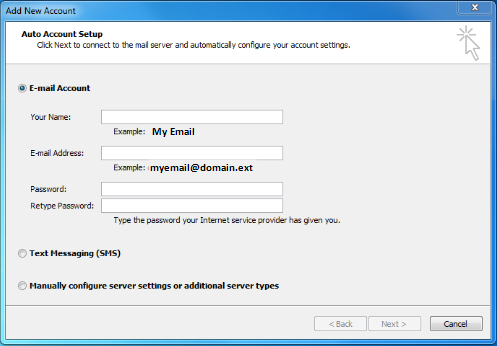
Step 2. The Add New Account window will open: - Enter Your Name - Enter Your full E-mail Address - Enter Your Password - Click Manually configure server settings or additional server types
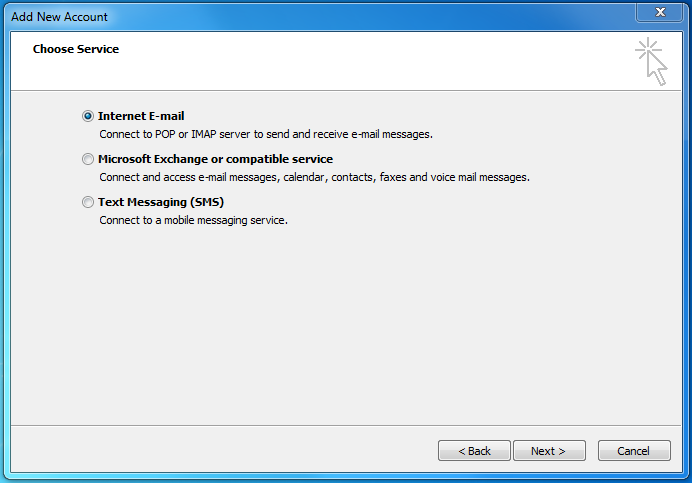
Step 3. The Add New Account window will change and require you to Choose Service - Select Internet E-mail - Click Next
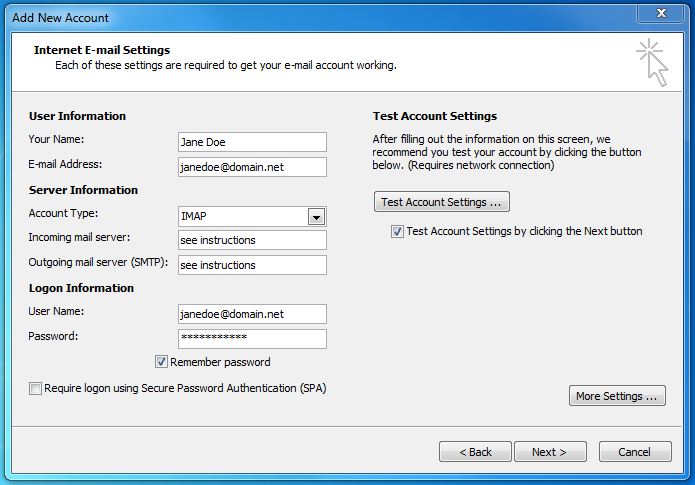
Step 4. Enter your Internet Email Settings - Make sure your Name, Email Address and Password are correctly entered - Ensure your full email address (ex: myemail@lingonetworks.net) is in the User Name box - Click the Account Type drop-down and select IMAP - In the Incoming mail server field enter: pop.lingonetworks.net - In the Outgoing mail server (SMTP) field enter: smtp.lingonetworks.net - Enter your full email address as your User Name - Click More Settings…
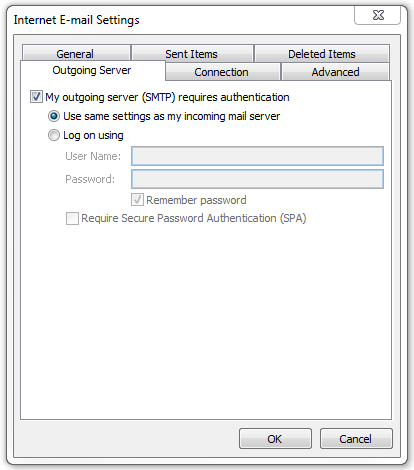
Step 5. Setting up your Advanced Account Settings: - Click the Outgoing Server tab - Make sure that the box for My outgoing server (SMTP) requires authentication is checked - The field < Use same settings as my incoming mail server > should be selected - Click the Advanced tab - Find the Incoming Server (IMAP) drop-down list and select SSL - Find the Outgoing server (SMTP) drop-down list and select SSL - Find the Outgoing server (SMTP) field and enter 465 (you may need to change the number in this field) - In the Incoming mail field, make sure that 993 is entered for IMAP - Click OK — you will be returned to the previous window - Click Next>
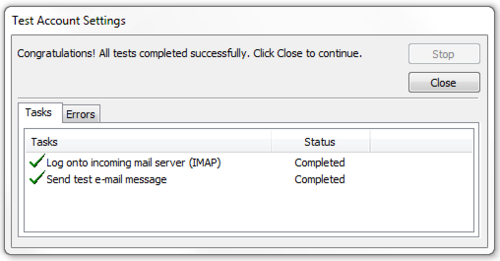
Step 6. The Test Account Settings window will appear and process the test automatically. If you experience an error, double-check all steps for accuracy, make sure your Internet connection is active, and try again. Step 7. Once your account settings are confirmed by the system, you are finished! Click Close to exit the setup window.
